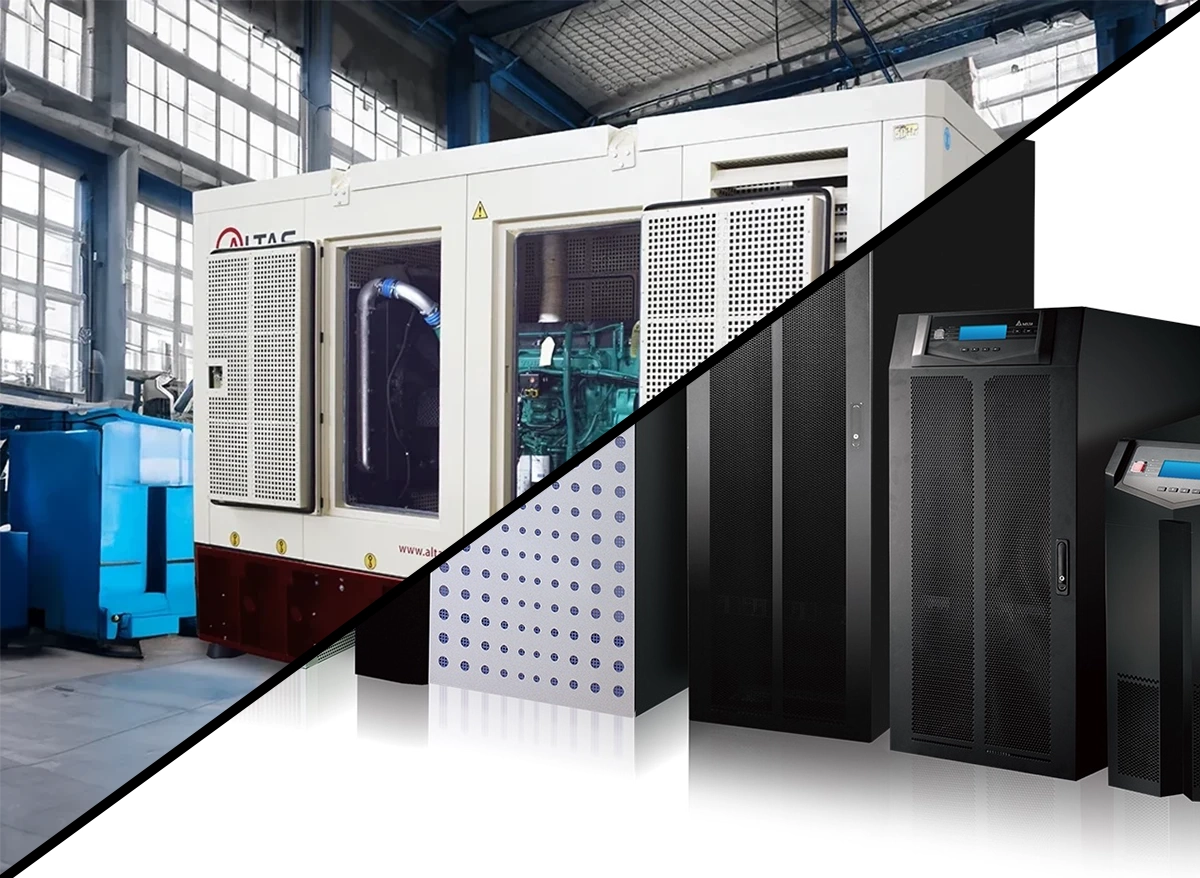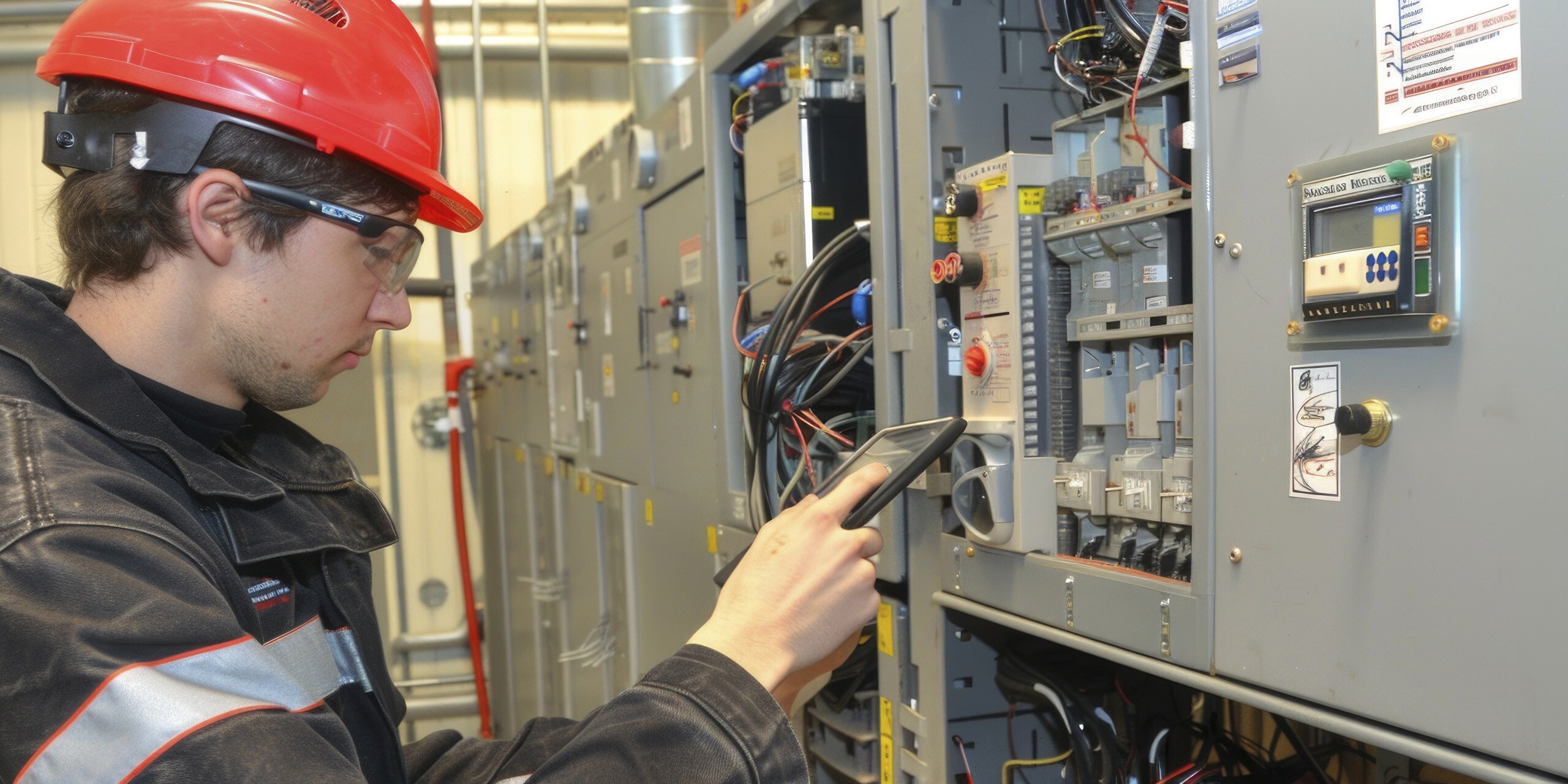Is your UPS not working when you switch to generator power? This can be frustrating, especially during power outages when you rely on backup systems the most.
You might be wondering why your UPS suddenly stops protecting your devices just when you need it. The answer lies in some common, but often overlooked, issues that affect how UPS units interact with generators. Keep reading to discover the simple reasons behind this problem and how you can fix it to keep your power running smoothly without interruptions.
Common Causes Of Ups Failure On Generator Power
UPS devices often fail when powered by generators. Understanding common causes helps prevent this issue. Generators do not always provide clean, stable power. This can cause UPS units to stop working properly. Below are typical reasons for UPS failure on generator power.
Voltage Fluctuations
Generators sometimes produce unstable voltage levels. Voltage can be too high or too low. This instability stresses the UPS and connected equipment. UPS units rely on steady voltage to work correctly. Fluctuations cause the UPS to switch off or fail.
Frequency Variations
Frequency changes are common with generator power. The generator may not keep a constant frequency. UPS systems require a fixed frequency to function well. Variations can confuse the UPS, causing shutdowns. This leads to power interruptions and possible damage.
Harmonic Distortion
Generators often create distorted electrical waves. Harmonics affect power quality and UPS performance. UPS units are sensitive to these distortions. Harmonic distortion can cause overheating or malfunctions. Clean power is essential for UPS reliability.
Generator Overload
Generators may become overloaded by too many devices. Overloading causes voltage drops and unstable power. The UPS may detect unsafe conditions and stop working. Proper generator sizing prevents overload and UPS failure. Balance the load to ensure smooth operation.

Credit: www.reddit.com
Checking Generator Compatibility With Ups
Checking generator compatibility with your UPS is important. Not all generators provide power that suits UPS devices. Some generators may cause your UPS to stop working or show errors. Knowing how to check compatibility saves time and prevents damage.
Ups Input Requirements
UPS devices need steady voltage and frequency. They expect clean, stable power input. Generators often produce power with small fluctuations. These changes can confuse the UPS. Always check the UPS manual for input limits. This helps ensure your generator can provide the right power.
Generator Power Quality
Power quality means how clean and stable the electricity is. Some generators produce power with high total harmonic distortion (THD). High THD can cause UPS failure or false alarms. Choose a generator with low THD, ideally below 5%. This keeps your UPS running smoothly.
Matching Power Ratings
Check the power ratings of both UPS and generator. The generator should supply enough wattage and voltage. If the generator is too weak, the UPS may not work properly. Ensure the generator rating matches or exceeds the UPS power needs. This prevents overload and protects your equipment.
Quick Fixes To Restore Ups Functionality
When a UPS does not work on generator power, quick fixes can help restore its function fast. These simple steps often solve common problems without expert help. Each fix targets a different cause of failure. Trying them can save time and stress.
Resetting The Ups
Turn off the UPS and unplug it from all devices. Wait for about one minute before plugging it back in. Press the power button to restart the UPS. This reset clears minor errors and refreshes its system.
Adjusting Generator Settings
Check the generator’s voltage and frequency output. The UPS needs stable power within specific limits. Use the generator’s controls to set voltage near 120V or 230V, depending on your UPS. Keep frequency around 50 or 60 Hz. Proper settings help the UPS work smoothly.
Replacing Faulty Batteries
Open the UPS battery compartment carefully. Inspect the batteries for leaks or swelling. Old or damaged batteries reduce UPS performance. Replace with fresh batteries matching the UPS model. New batteries restore backup power and increase reliability.
Inspecting Connections
Look at all cables and plugs linked to the UPS. Loose or corroded connections cause power issues. Tighten any loose wires and clean dirty contacts. Check both the input from the generator and the output to devices. Secure connections ensure steady power flow.
Expert Tips For Reliable Ups Operation On Generator
Reliable UPS operation on generator power can be challenging. Generators may cause voltage fluctuations and frequency changes. These issues can affect the UPS performance and connected devices. Following expert tips helps keep your UPS running smoothly during power outages.
Using Line-interactive Or Online Ups
Choose a UPS type that handles generator power well. Line-interactive UPS adjusts voltage automatically. Online UPS provides clean, consistent power by isolating the load. Both types protect sensitive equipment from generator power problems.
Installing Power Conditioners
Power conditioners improve the quality of generator output. They stabilize voltage and filter out noise. This reduces stress on the UPS and connected devices. Installing power conditioners helps prevent UPS shutdowns and errors.
Regular Maintenance Schedules
Schedule regular checks for your UPS and generator. Inspect batteries, connections, and internal components. Clean dust and debris from the equipment. Timely maintenance prevents unexpected failures and extends UPS life.
Monitoring Power Quality
Use monitoring tools to track voltage and frequency levels. Detect anomalies early to avoid UPS interruptions. Monitor power quality continuously during generator use. This data helps adjust settings and improve system reliability.
Preventing Future Ups Issues With Generators
Preventing future UPS issues while using generators is important for smooth power backup. UPS and generators must work well together. Proper steps can stop common problems. This keeps your equipment safe and power steady.
Upgrading Generator Systems
Older generators may cause UPS problems. Upgrading to modern generators helps. New models offer cleaner and more stable power. They match UPS needs better. This reduces power fluctuations and failures.
Check generator output regularly. Make sure it fits UPS specifications. Installing automatic voltage regulators can improve power quality. Better power means fewer UPS errors and longer lifespan.
Surge Protection Measures
Power surges from generators can damage UPS units. Installing surge protectors is key. Surge protectors block sudden voltage spikes. Use high-quality devices for best results.
Consider whole-building surge protection systems. They guard all connected equipment. This lowers risk of damage during power changes. Surge protection keeps UPS running smoothly.
Training And Awareness
Staff must understand UPS and generator operation. Training reduces errors during power outages. Teach how to start and stop generators safely. Explain UPS response to generator power.
Regular drills help staff react quickly. Awareness prevents mistakes that cause UPS failures. Well-trained teams keep power systems reliable and safe.

Credit: redsanstore.com

Credit: www.mediproducts.net
Frequently Asked Questions
Why Does My Ups Fail On Generator Power?
UPS may fail due to voltage instability or frequency mismatch from the generator.
Can A Generator Damage My Ups System?
Yes, unstable power from generators can harm UPS internal components.
How To Fix Ups Not Working With Generator Power?
Use a generator with stable output and check UPS settings.
Is My Ups Compatible With All Generator Types?
Not always. Some UPS models need specific generator power quality.
What Causes Ups Alarms During Generator Use?
Alarms often signal poor voltage or frequency from the generator source.
Conclusion
UPS devices may fail on generator power due to voltage and frequency issues. Always check your generator’s output quality first. Using a compatible UPS model can prevent many problems. Regular maintenance helps keep both devices working smoothly. Understanding how your UPS and generator interact saves time and frustration.
Stay prepared by testing your setup before power outages strike. Simple steps can ensure your backup power runs without trouble. Keep your equipment safe and your power steady.
